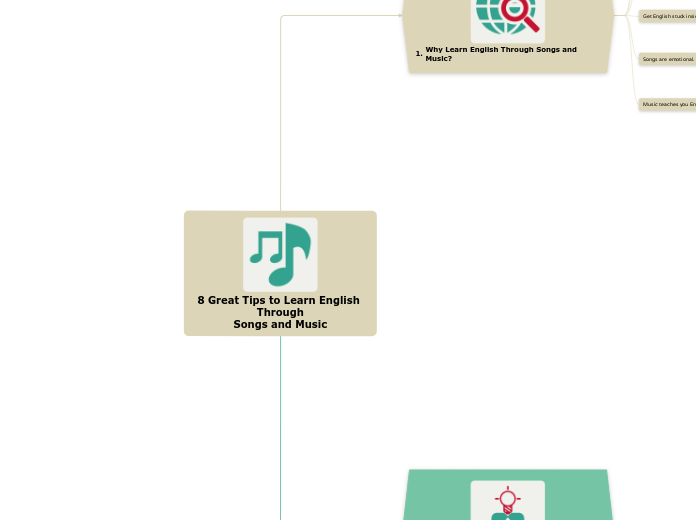arabera Caroline Paca 2 years ago
191
8 Great Tips to Learn English Through Songs and Music

arabera Caroline Paca 2 years ago
191

Honelako gehiago
What's your essay about?
Type in the title of your essay.
Work on the structure of your essay.
Create a catchy introductory paragraph.
Take into consideration the interests of your audience.
Have fun and enjoy! Music is a universal language and one that we can all enjoy and relate to.
When you incorporate language learning into fun activities like listening and singing aloud to music, you won’t even notice that you’re picking up a second language.
Each new song that you learn should have the right balance of totally new vocabulary and in-progress vocabulary.
This right level of overlap keeps you motivated, and also naturally reinforces your previous learning for maximum benefit.
This is perhaps the most difficult step.
Then after enough time passes, you can go back to the first song.
“spaced repetition”
After you get comfortable with one song, you can move to the next.
Another fun way to test your memory is with the game Lyrics Training
Try singing the song without looking at the lyrics
You should be able to find that you can do a much better job including such words in your everyday speech.
After a while, you should find that you’re starting to memorize the song
This forces your mouth to adopt the right shapes and move with the rhythm of the song.
Regardless of your singing prowess, you should try singing out loud to the music.
You can do this through a flashcard service like Anki, FluentU or Mental Case.
Break the song down, word by word, and try to master each word so that it’s a part of your vocabulary.
Choose the strongest idea to build your essay around.
Summarize the direction you want to follow with this essay into the thesis statement.
Instead of trying to figure out the lyrics on your own, you can use resources like the following to accelerate this:
FluentU
Music English
Lyrics.com and Smartlyrics.com
Scaffolding is something that holds up and supports something that is being built, like training wheels for a bicycle.
In practice, you will have to spend some time digesting the lyrics and their meanings so that you understand it first.
Start with pop music and then branch out.
You might want songs that tell a story, which could make it easier to understand and visualize.
Sometimes singers won’t pronounce the sound clearly.
Find music that uses the right kind of language.
Provide details on the subject.
Write a couple of sentences that provide details on the subject you will address in the body of your essay.
This means language that’s not too easy or too hard, and that’s commonly used.
Write an engaging first sentence.
Did you discover any interesting anecdotes, quotes, or trivial facts while researching your topic? Use them to write your sentence.
FluentU
There is something great in our collection for English language learners of any skill level from “newbie” (beginner) to native.
Spotify
YouTube and Vimeo
Research your topic
Write down the sources you will base your essay on.
Music is an easy habit.
When you’re learning English through songs, you don’t need to set aside too much time because you can take the music with you wherever you go.
One reason people find language learning difficult is they don’t have an extra minute in the day to devote to their studies.
List second-hand information :
comments, interpretations, or discussions regarding the original material, etc.
What secondary source(s) will you take into account for your research?
Type in your source(s)
or
Add hyperlinks to your source(s).
List first-hand information :
What primary source(s) will you take into account for your research?
Type it (them) in.